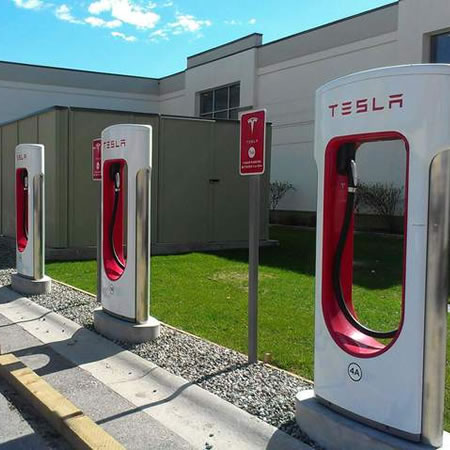The Basics of Electric Car Chargers

August 19, 2025
The Basics of Electric Car Chargers
As the world shifts towards sustainable transportation, understanding the ins and outs of electric vehicle charging becomes increasingly essential. Whether you're a proud EV owner or considering making the switch, the team at Neighborhood Electric is here to provide valuable insights into the world of EV charging station installation. With the help of a skilled electrician and a knowledgeable EVSE installer, you'll be well-equipped to make informed decisions and ensure a seamless charging experience for your electric vehicle.
Safety
When it comes to electric car chargers, prioritizing safety is of paramount importance. Proper installation and maintenance of your EV charging station are essential to ensure both your vehicle and your home remain safe and protected. Engaging a qualified electrician with experience in EV charging station installation will help prevent potential hazards, including electrical fires or damage to your vehicle's battery. Furthermore, it's crucial to select an EV charger that meets the necessary safety certifications and standards, such as UL or CE, to guarantee its compliance with industry regulations. Always follow the manufacturer's guidelines and recommendations for the charger's use and maintenance, as well as any local building codes and requirements. By taking these essential safety precautions, you can confidently enjoy the benefits of electric vehicle ownership while minimizing any associated risks.
Charging Time
Understanding the charging time for electric car chargers is crucial when planning your daily routines and long-distance trips. The duration of the charging process depends on multiple factors, including the charger's power output, the vehicle's battery capacity, and the current state of charge. Generally, Level 1 charging, which utilizes a standard 120V household outlet, offers the slowest charging speed, taking several hours to charge a fully depleted battery. On the other hand, Level 2 charging, with its 240V power supply, significantly reduces the charging time, often replenishing a battery within a few hours. High-powered DC fast charging stations, typically found at public charging networks, can provide an even quicker solution, charging most EVs up to 80% within 30 minutes to an hour. Familiarize yourself with these charging options and their respective timeframes, so you can effectively manage your EV's charging schedule and optimize your vehicle's performance.
Electrical Availability
Before installing an electric car charger at your residence or workplace, it's essential to evaluate the electrical availability of the location. The electrical infrastructure should be capable of handling the additional load from the EV charging station without causing any disruptions or overloading the existing circuits. Consulting with a professional electrician or a certified EVSE installer is highly recommended to assess the site's electrical capacity and determine the most suitable charger type for your needs. In some cases, an electrical panel upgrade or additional circuit installation might be necessary to accommodate the charging station.
Are You Looking for a Qualified EVSE Installer?
At Neighborhood Electric, we pride ourselves on providing expert guidance and top-quality EV charging solutions tailored to your specific needs. Our team of dedicated professionals is committed to ensuring your safety, optimizing charging times, and addressing any electrical availability concerns. Reach out to us today, and let us help pave the way to a more sustainable and efficient driving experience for you.








